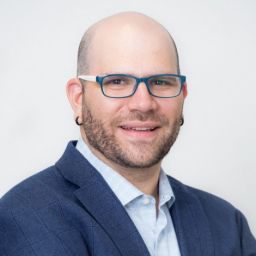Editor’s Note: Suzanne Nossel is CEO of PEN America. She was formerly executive director of Amnesty International USA and deputy assistant secretary of state for international organizations at the State Department. Jonathan Friedman is project director for campus free speech at PEN America. He was formerly an adjunct assistant professor of higher education at Teachers College, Columbia University. The opinions expressed in this commentary are solely those of the authors. View more opinion articles on CNN.
President Donald Trump’s recent vow at the Conservative Political Action Conference to sign an executive order supporting free speech on colleges campuses has stoked fears in the academy.
Critics predict that the proposed order risks meddling in a university’s autonomy or politicizing academic freedom. Until the President presents a draft, his intentions are hard to confirm. But unless his proposed decree is carefully and narrowly crafted, the President’s purported effort to promote campus speech may well suppress more speech than it protects.


There are valid concerns about the climate for free expression on campus. Protests have silenced invited speakers. Students have mounted national campaigns to get professors fired for offensive Facebook posts and tweets. Administrators have shut down campus art exhibits deemed objectionable.
Certain terms, topics and theories are now deemed so offensive on racial, gender, religious or other grounds that for many the easiest answer is not to speak them at all, even if for purposes of scholarly analysis. Hardly a week goes by without a group on the left or right calling to silence those on campus with whom they disagree.
Against this backdrop, government intervention to defend robust protections for campus speech may seem perfectly justified. But recent experience at both the federal and state levels reveals both the potential and the perils of government action in this realm.
President Trump has declared that his forthcoming order will use the cutting or denial of federal research funds as a cudgel to force compliance with free speech edicts. Such provisions are a recipe for politicization. Tie-ins between campus speech and appropriations or research funds are meant to strike fear in the hearts of administrators, prompting them to consider the political leanings at the state and federal level in deciding which speakers to invite and how to adjudicate speech-related controversies.
Such measures are intended not to keep speech open, but rather to put universities on notice that they are being watched and will face the consequences if their decisions fall afoul of politics.
What state efforts can teach us
According to a PEN America analysis, nearly 30 state legislatures have considered some type of campus speech legislation in the past two years. Most have been voted down, but about a third have become law. Most such bills follow a similar pattern, containing measures that include prohibiting administrators from intervening to cancel invited speakers, mandating annual reporting on the state of free expression on campus and imposing penalties for those who infringe on others’ speech rights.
Some aspects of these bills are a plus for free speech. There’s nothing wrong with affirming the importance of free expression principles. In states including Arizona, Louisiana and Virginia, legislation passed last year requires colleges and universities to include free speech policies in freshman orientation programs and materials.
Given a recent poll by Gallup and the Knight Foundation that found limited support for the First Amendment among college students and many willing to entertain restrictions on some speech, education and information dissemination on speech rights is essential.
Laws passed in Arkansas, Florida and Kentucky prohibit universities from designating specific, finite areas of campuses as “free speech zones.” The establishment of “free speech zones” on campus grew out of anti-Vietnam War protests and were aimed to facilitate policing and crowd control.
But the First Amendment and the principles that guide most private higher education institutions in our country dictate that the entire campus must be a free speech zone, allowing for the open exchange of even controversial ideas. Measures to block the imposition of delineated “free speech zones” can help promote a more open campus as a whole.
Where the administration stands on free speech
In certain instances, the Trump administration has intervened usefully on campus speech issues. When Kevin Shaw, a student at Los Angeles’ public Pierce College, was told that he would only be allowed to hand out Spanish-language copies of the Constitution in a small, specific “free speech zone,” he sued.
The Department of Justice filed in support of Pierce in late 2017, arguing that his civil rights had been violated. The suit was settled in December 2018, with the college agreeing to greatly enlarge the free speech zone. The government’s intervention in this instance was warranted and may have helped yield the positive outcome.
But skeptics are still right to worry that the President’s order might not be confined to measures that actually support free speech. Many draft and actual campus speech measures can have unintended, and sometimes serious, negative consequences for open discourse.
PEN America has previously reported how several bills and laws include overbroad and vague language that imposes harsh discipline for acts that purportedly infringe upon the speech rights of others. A 2017 North Carolina law requires disciplining those who “substantially interfere with the protected free expression rights of others … including protests and demonstrations that infringe upon the rights of others to engage in and listen to expressive activity.”
But the bill doesn’t specify how “substantial” such interference must be. A vociferous protest that delays the start of a lecture or creates a persistent rumble outside the lecture hall would almost certainly constitute protected speech under the First Amendment, yet warrant punishment pursuant to this law.
Dueling rallies on a campus plaza could make it challenging for audience goers to hear the speakers they came out to see, but punishing participants would amount to the suppression of speech. Such imprecise legislative language risks confusion, inconsistent interpretations and overzealous enforcement by administrators who are understandably unsure where boundaries lie.
Absent credible efforts to counter such perceptions, an executive order by President Trump – announced at CPAC, the annual political conference for conservative activists – is certain to be seen as a thumb on the scale for conservative voices on campus.
While calls to shut down campus speech come from both the right and the left, the Trump administration’s interventions to date have been one-sided. In a speech before a gathering of conservative students last summer, then-attorney general Jeff Sessions made the administration’s agenda plain, decrying infringements on speech by the “hard left” and riling up right-leaning collegians with the specter of “elements in our society today who want to stop you and silence you.”
The administration has also been selective in its legal interventions, backing students seeking to distribute the Constitution but staying silent on the rights of college cheerleaders at Kennesaw State University who took to their knees in solidarity with the NFL protests.
If the President is serious about wanting to better the climate for free speech on campus, he should begin by openly consulting university leaders and First Amendment experts. A one-sided edict penned behind closed doors to threaten and bully college administrators will chill more speech than it frees.


